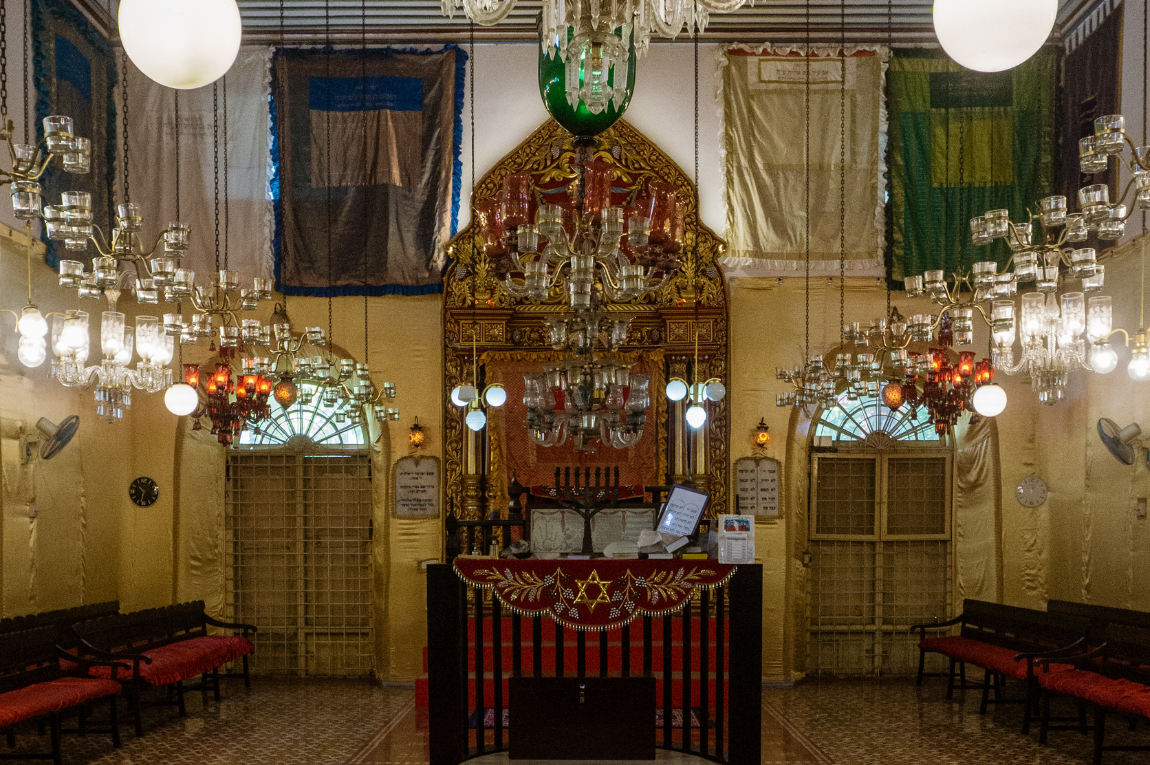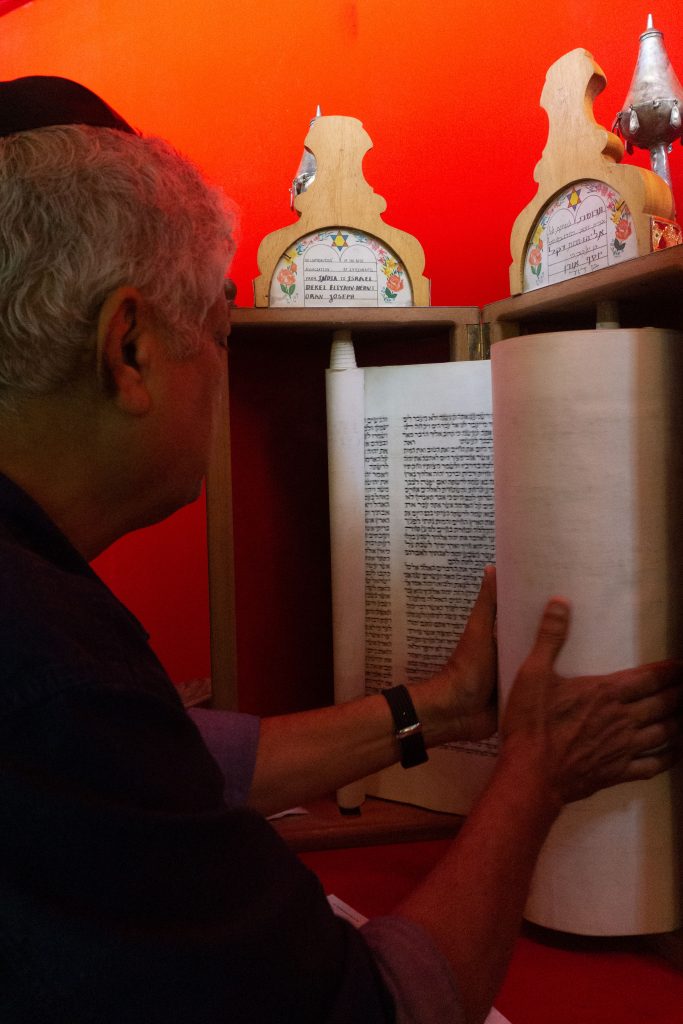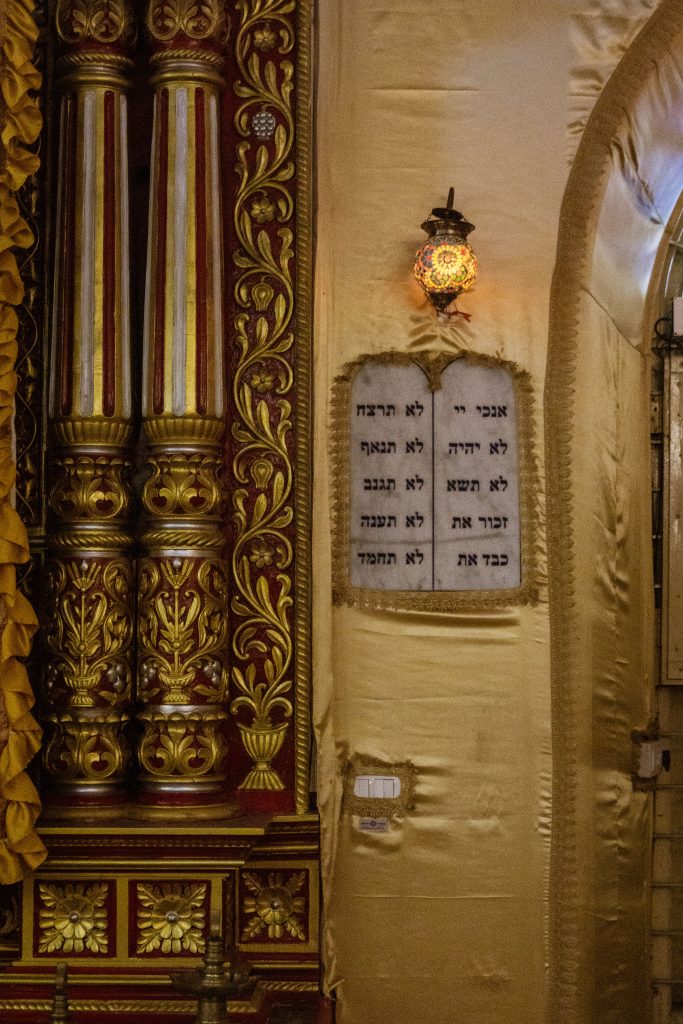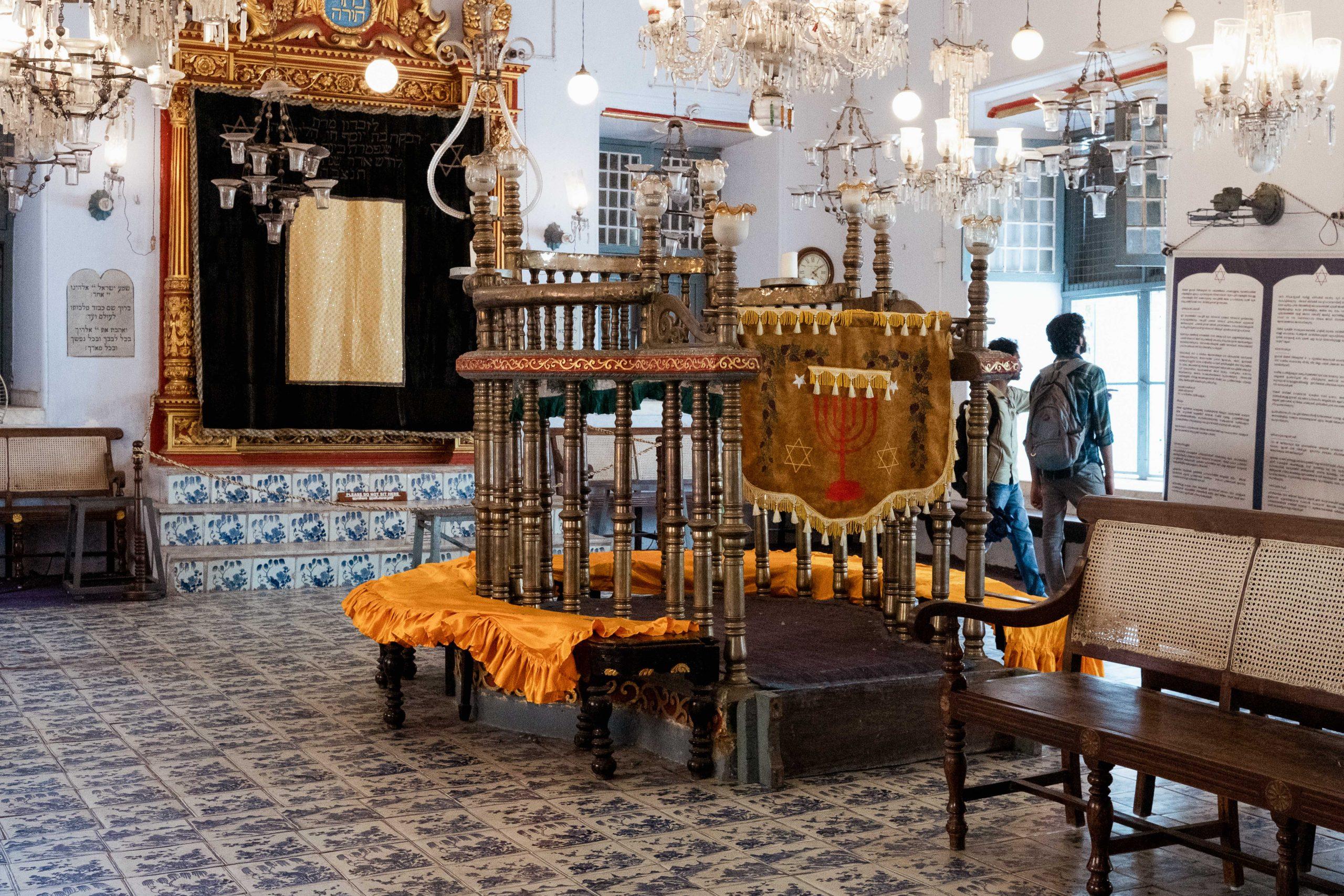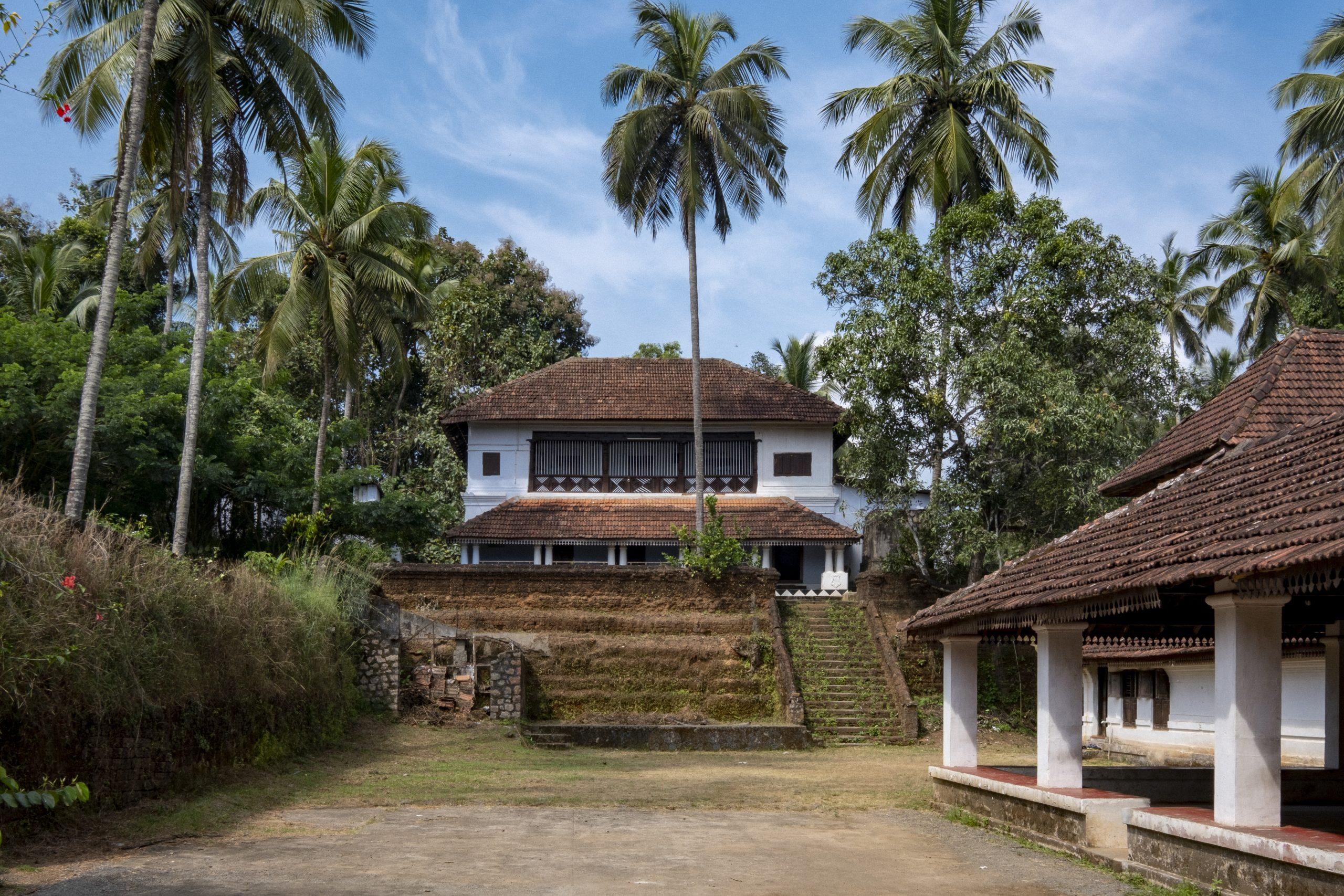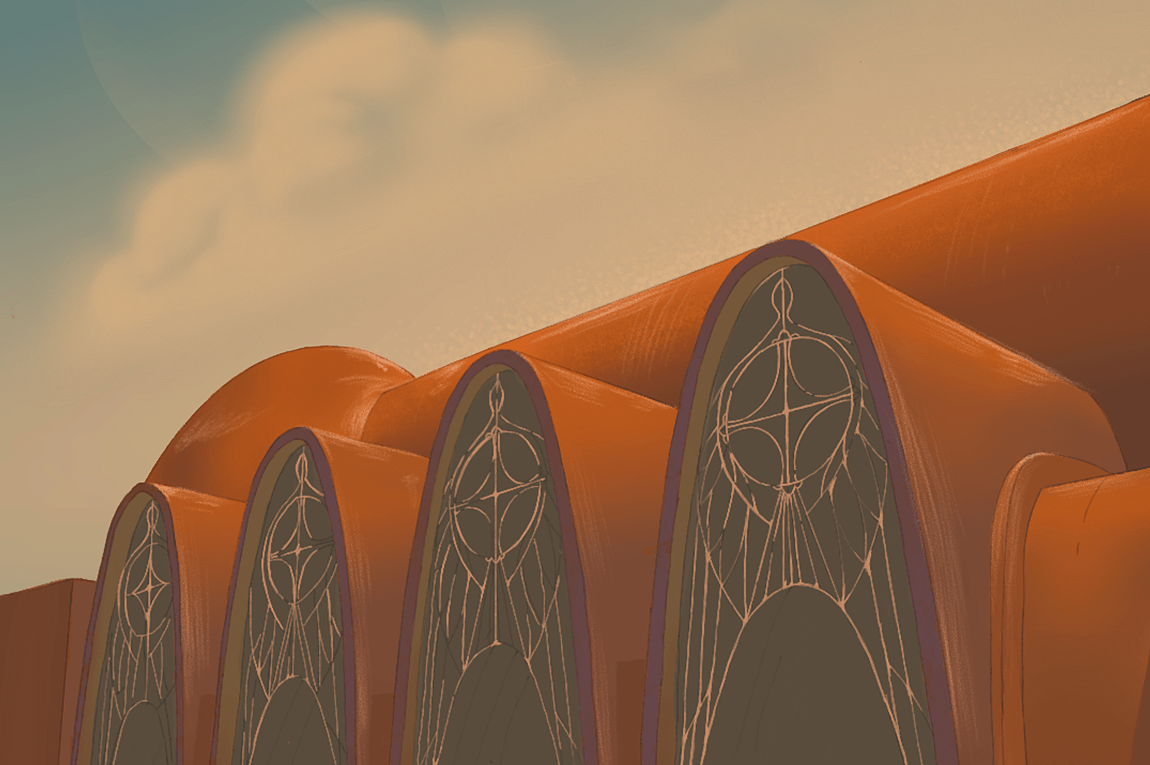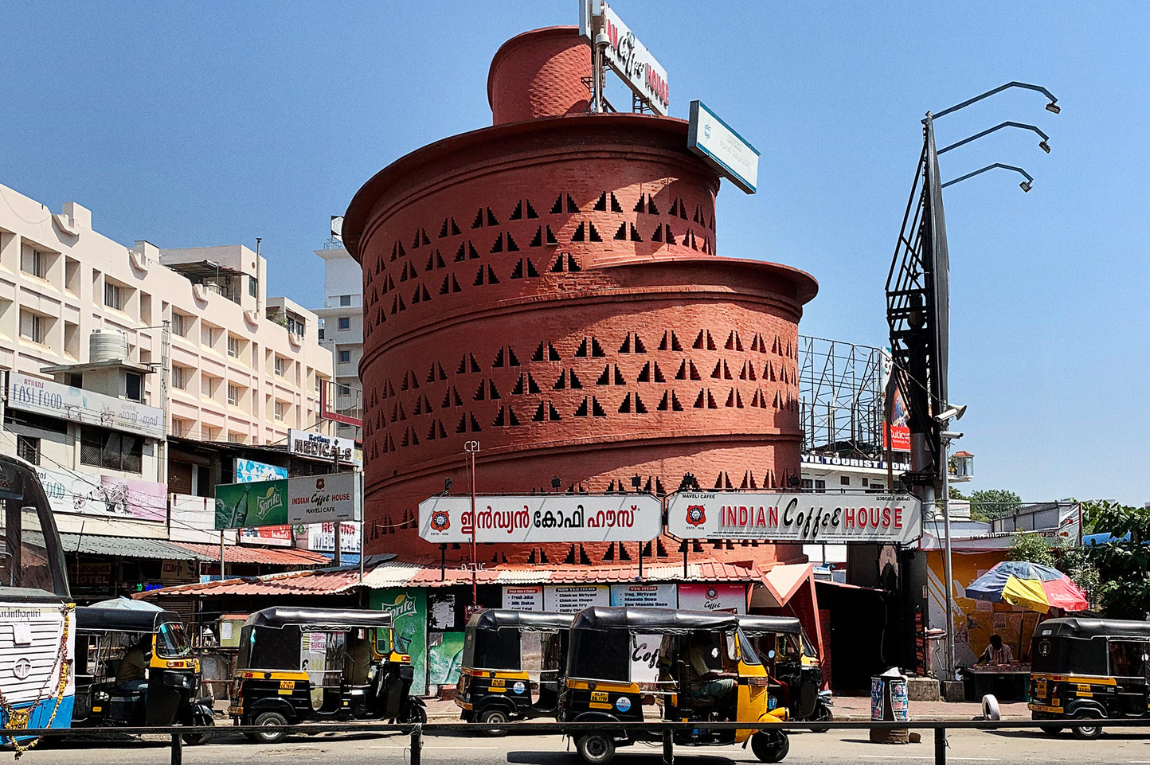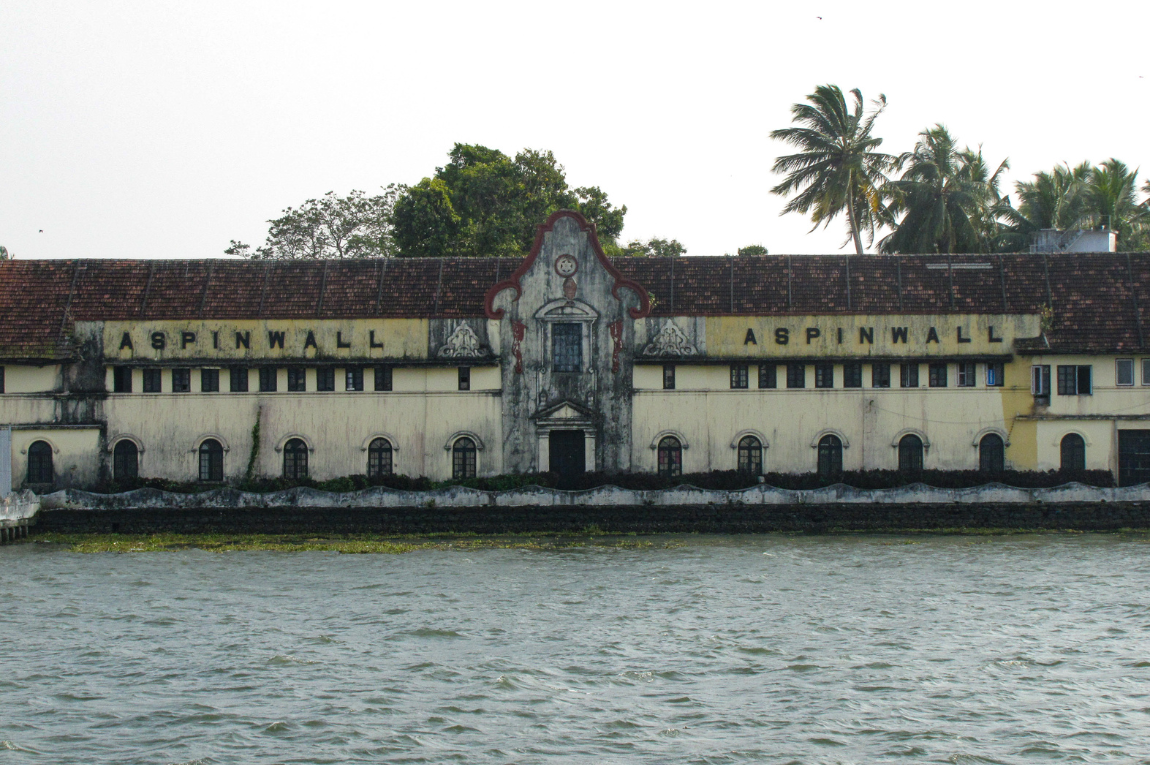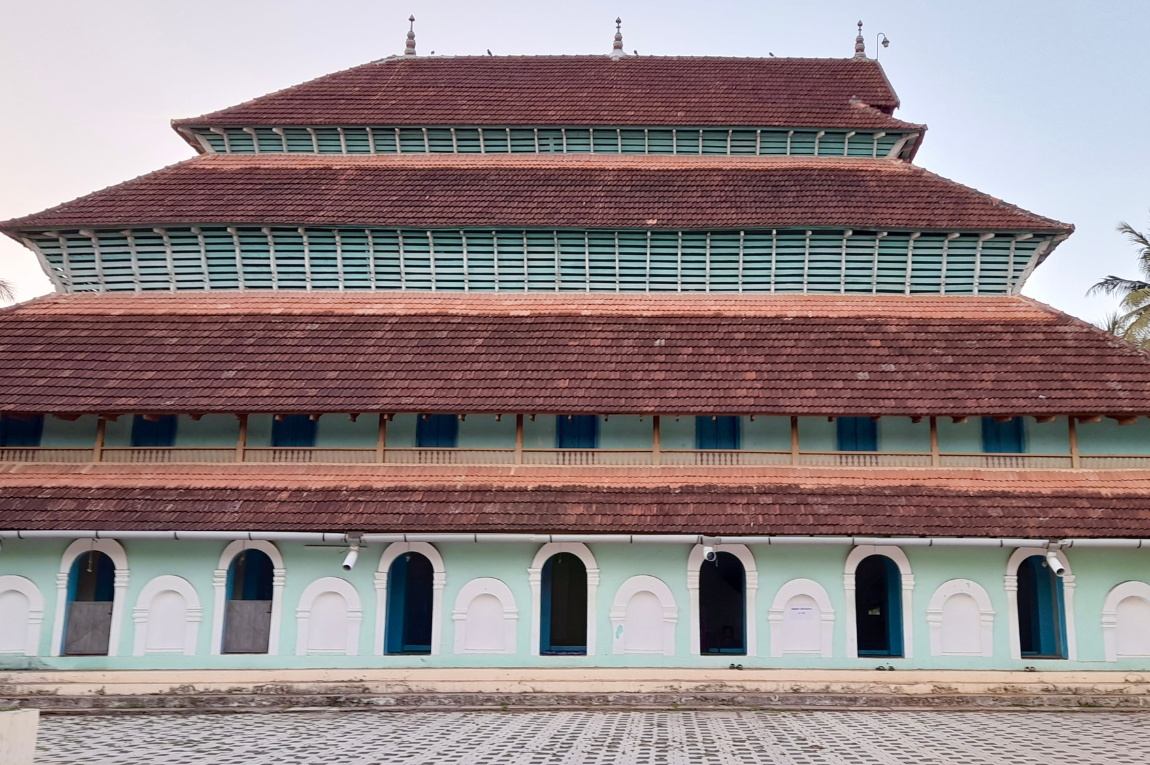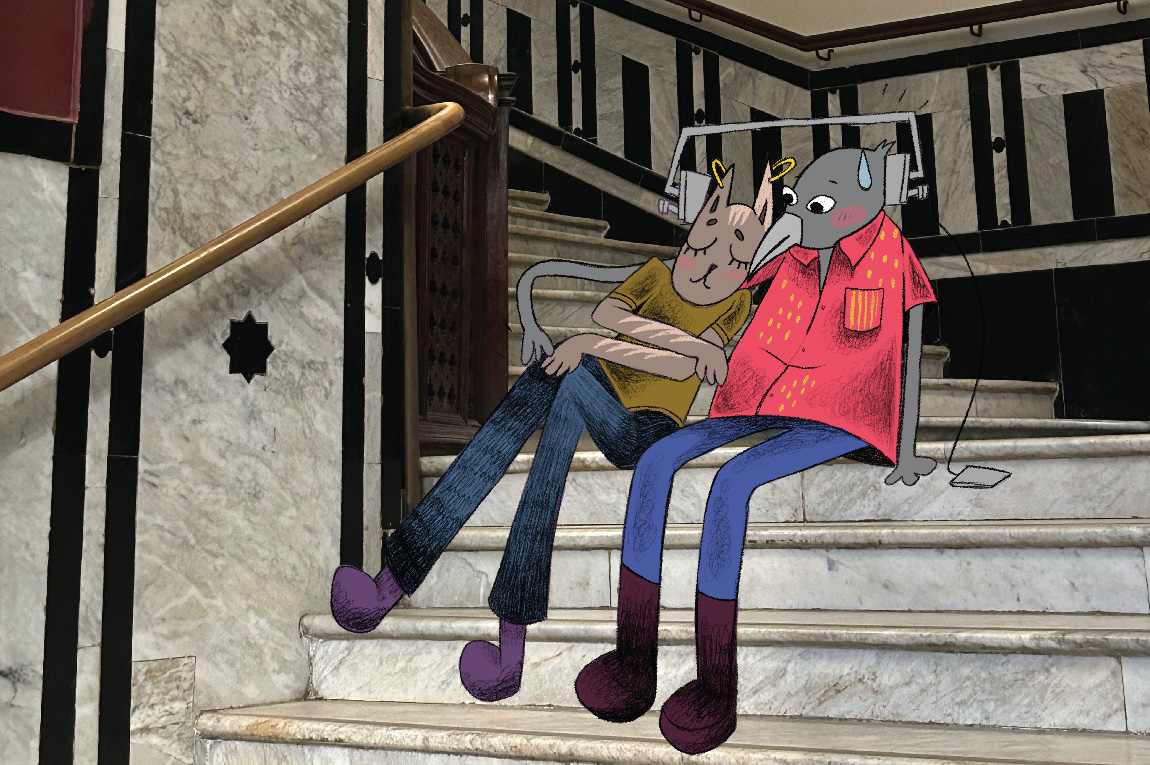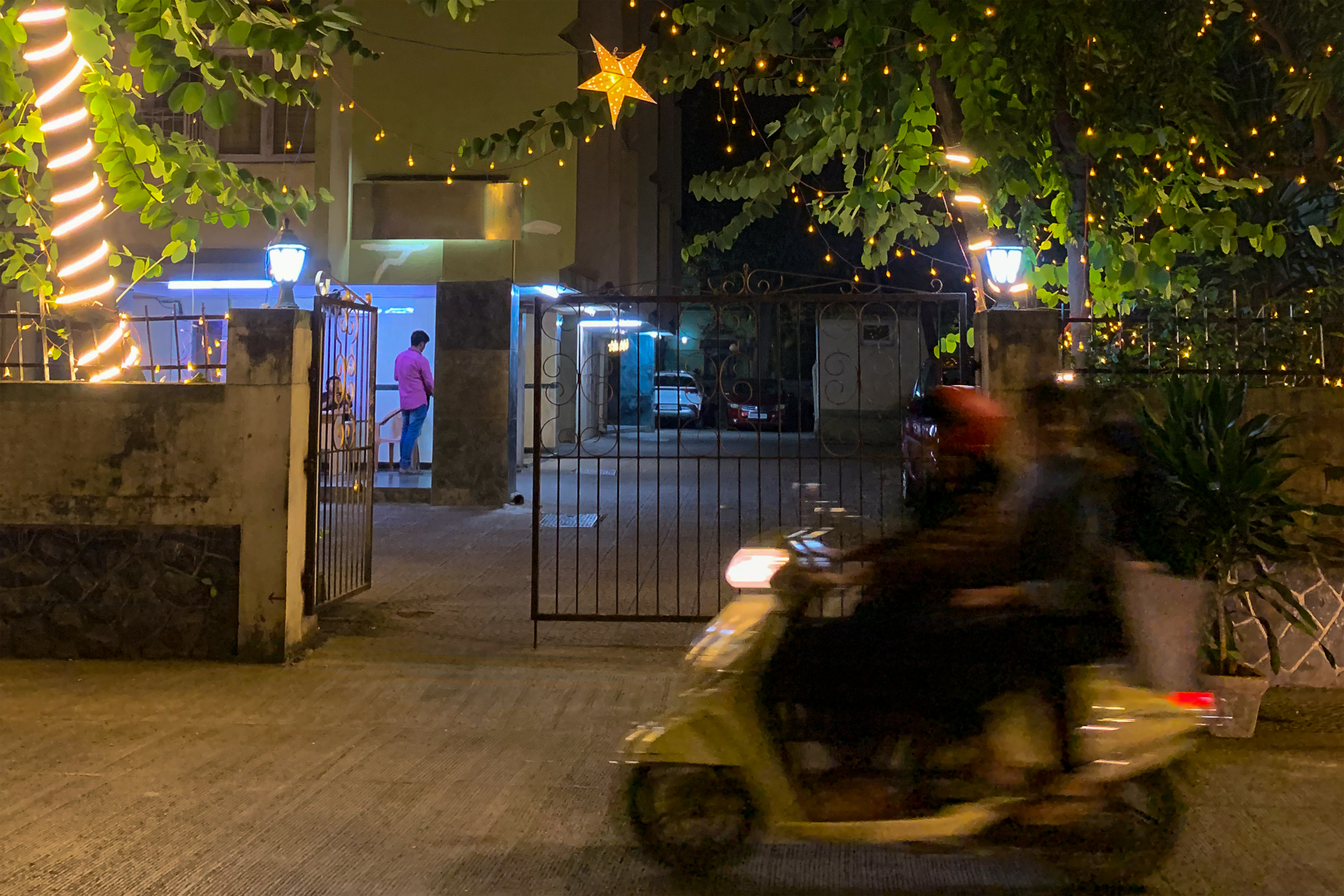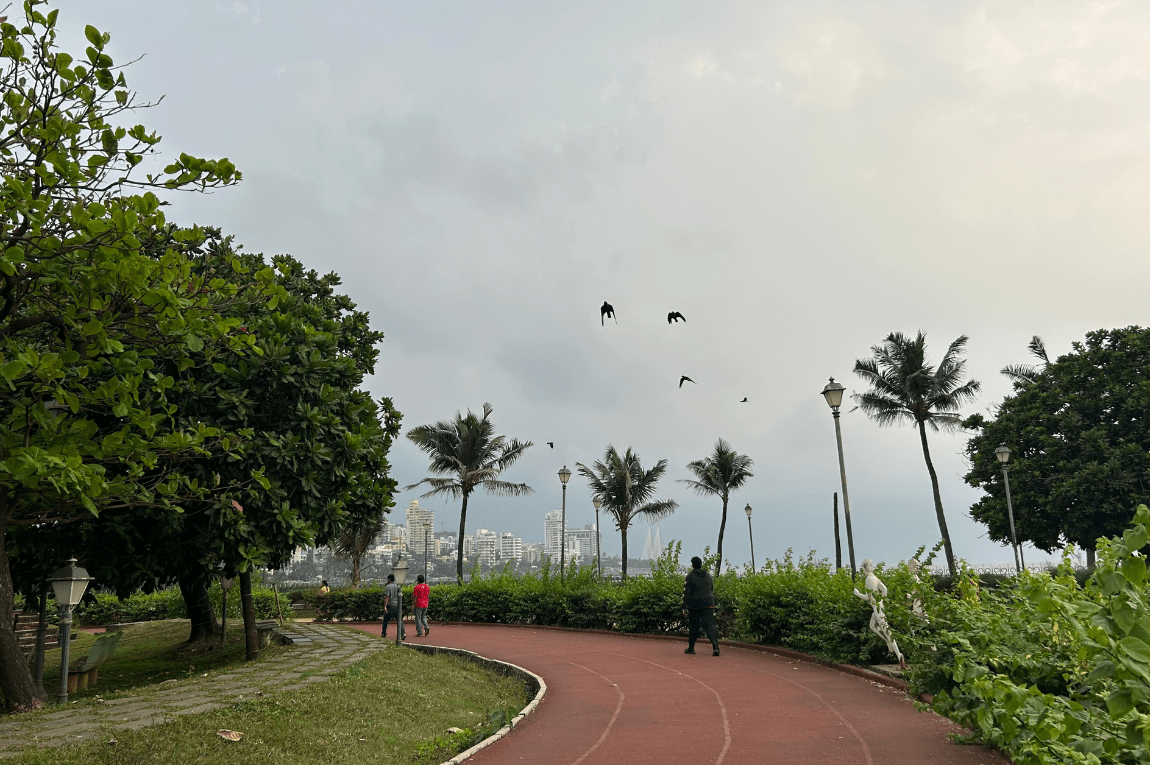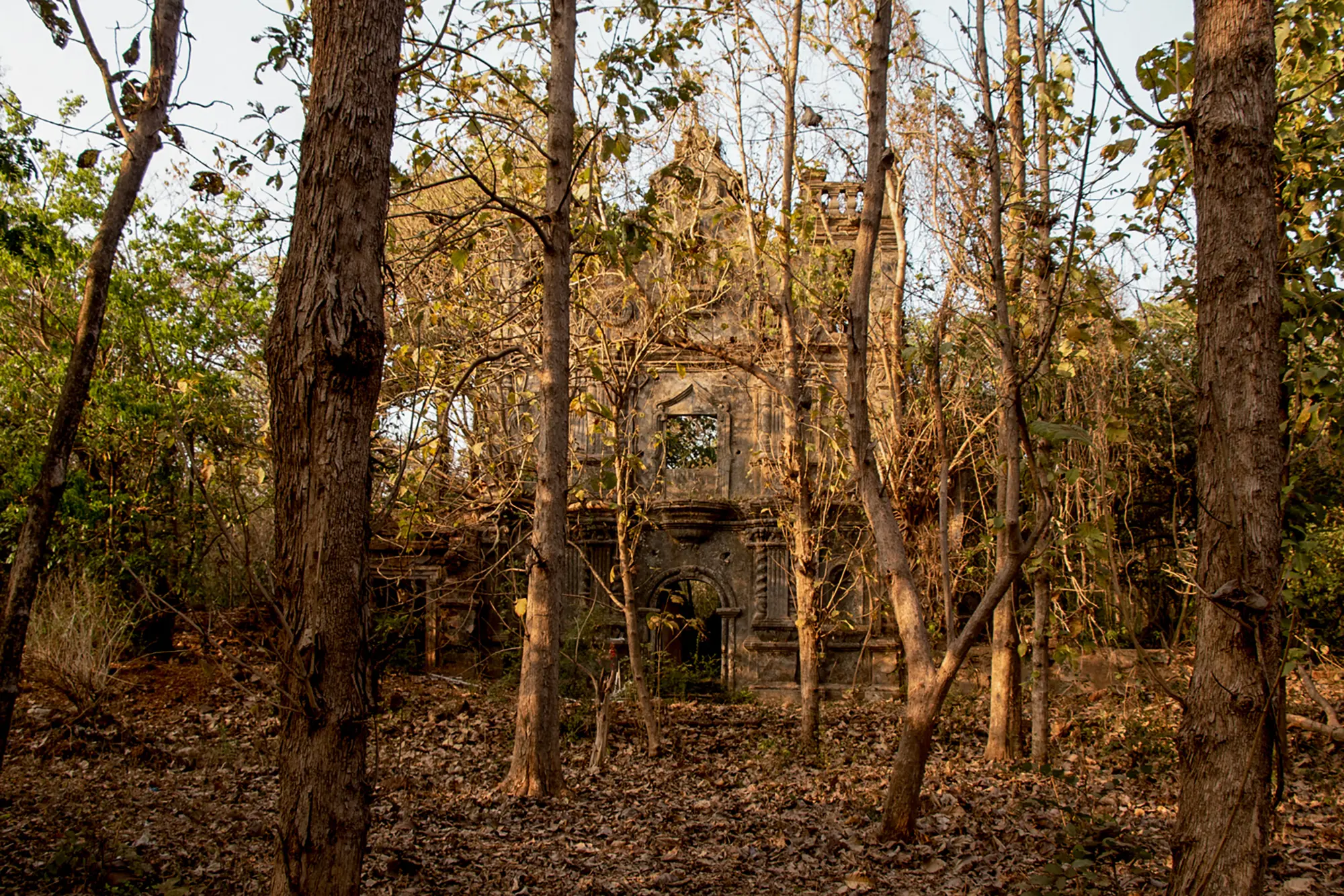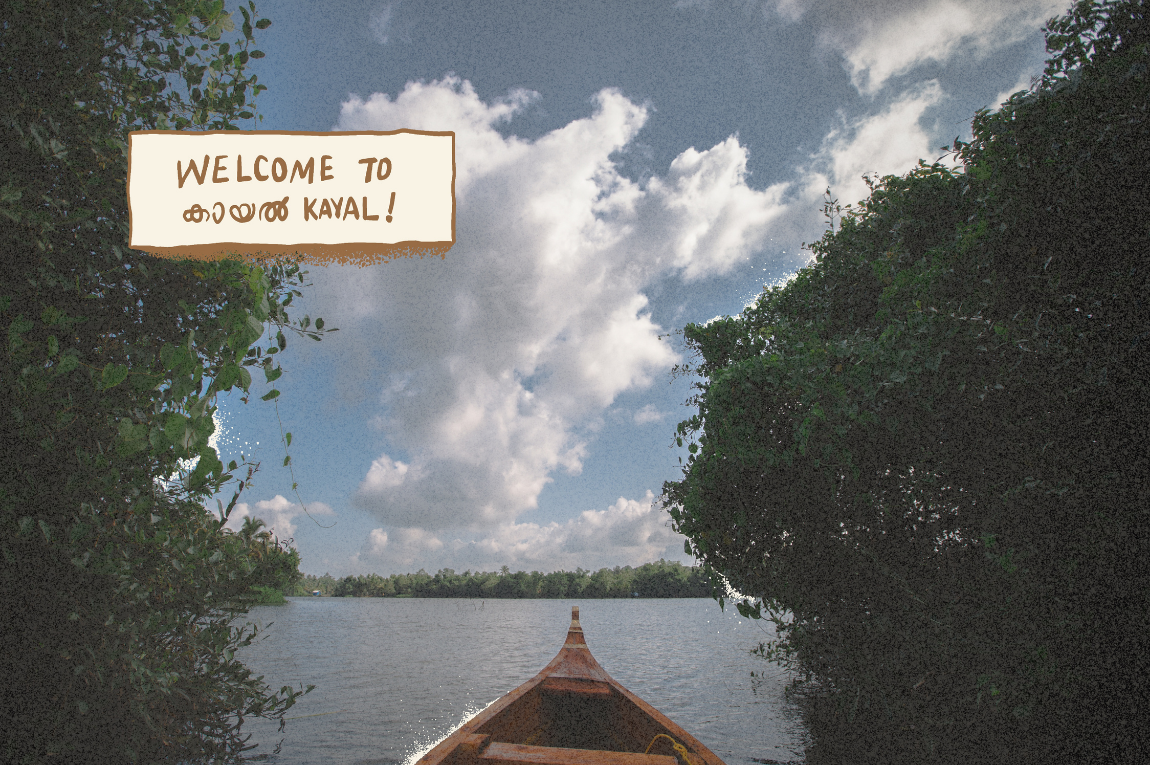“It’s a quiet Hanukkah for Josephai and Ofera at this little-known Jewish Synagogue at Kochi,” reported a piece in The Times of India in December 2017. That is how I first discovered the existence of the Kadavumbagam Ernakulam Synagogue — one among seven synagogues built in and around Kochi — and the dwindling Jewish community in the city. While the Paradesi Synagogue in the Mattancherry Jew Town area is popular among locals and tourists alike, not much is known about the Kadavumbagam Synagogue.
Growing up, I have seen Kochi transform rapidly — a constant demolition of old buildings one day and mushrooming of shopping malls, flats and the metro another day. But there exists a different Kochi too, hidden in the shadows of the relatively fast-paced city.
Walking past the tiny grocery stores of the old Broadway Market, I reached in front of the Kadavumbagam Synagogue, the oldest active synagogue across all Commonwealth countries. From a distance, the synagogue, camouflaged with the backdrop of the city’s old quarter, looked just like any other building waiting to be destroyed.
But as I walked in through the half-octagon-shaped entrance, an extraordinary space unfolded before me — a long prayer hall with ten arched wooden windows representing the Ten Commandments along with two golden pillars, those of Boaz and Jachin, representing the guards. Legend has it that Boaz and Jachin were two pillars that stood on the porch of Solomon’s Temple, the oldest temple in Jerusalem. The ceilings of the synagogue are carefully hand-carved and painted; a pattern comprising lotus flowers is arranged in a small grid. The large hall has a raised podium in the centre called the Bimah, which is used to read the Torah. Structurally, the building’s architecture is based on the principles of Kerala Vastu Shastra — or ‘Thachu Shastra’ (the science of carpentry) in Malayalam — wherein timber, an easily available material, is used to construct the roof and walls.
The Kadavumbagam Synagogue, dating back to 1200 CE, is said to have been built as a replica of the destroyed synagogue in the old harbour town of Muziris, thought to be north of Kochi. Its origins, however, are debatable, with one narrative suggesting that the synagogue was constructed as a result of the resettlement of the Jews in Ernakulam from Cranganore in 1154 CE, following their persecution at the hands of the Moors. Centuries later, in 1700, the synagogue was rebuilt to its current state. However, following the migration of Jews back to Israel in 1972, it was left ignored until Elias Josephai took charge of it.
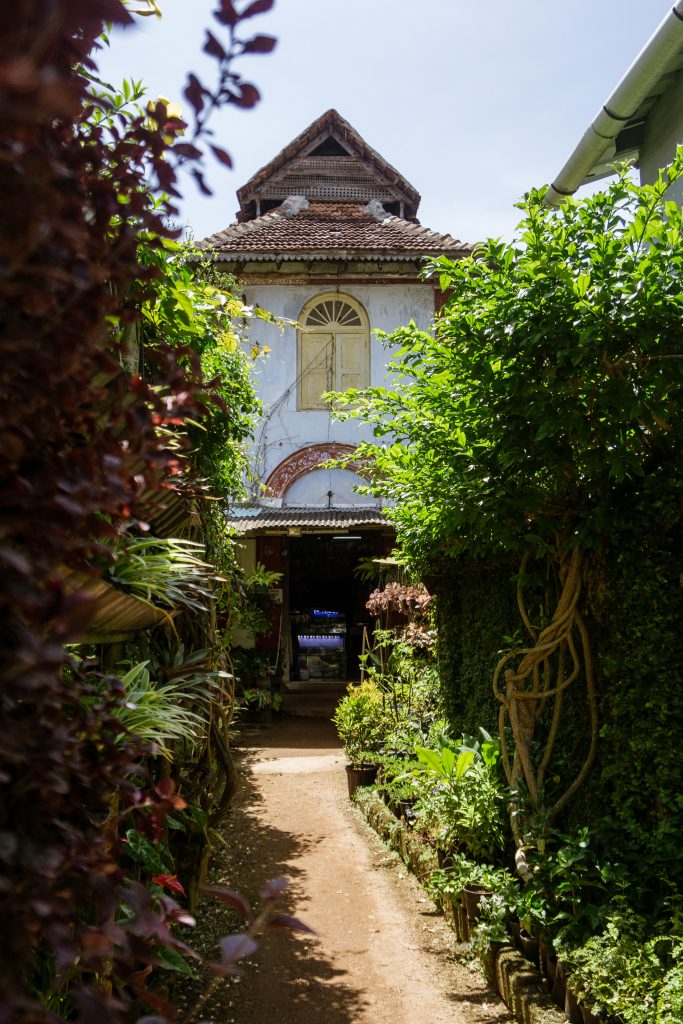
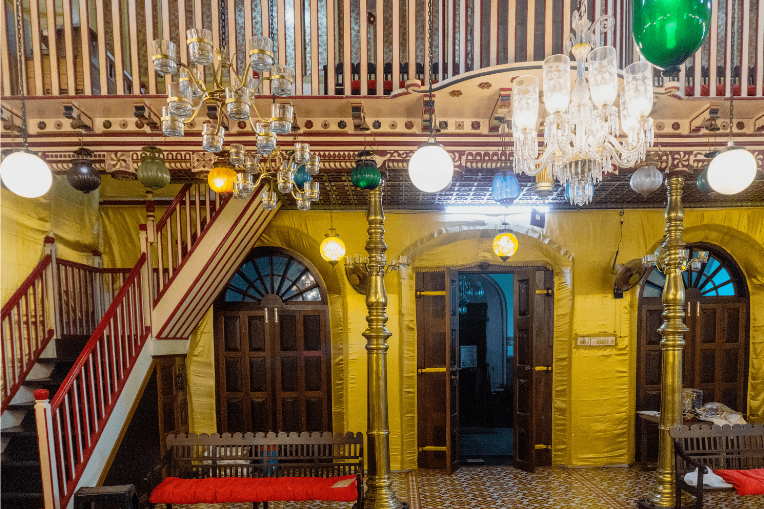
“We renovated the synagogue by maintaining the core structure as it stood in the early 18th century,” says Josephai, the managing trustee and caretaker of the synagogue. It was in 1968, when, as a 12-year-old, he first wished to lay tiles at the Kadavumbagam Synagogue, seeking inspiration from the Paradesi Synagogue.
Even when a large population of Jews returned to Israel, the promised land of Jews, during the 1960s and 70s, Josephai stayed back in Kerala to restore the synagogue. When the Jews returned to Israel, they took the Torah with them. Thereafter, the synagogue remained shut as it could not function without the holy scriptures. Finally, after 50 years, in 2018, the renovation was completed and the Torah was welcomed back into the synagogue.
The Kadavumbagam Synagogue is a melting pot of cultures, a perfect example of syncretism. “Chettinadu Athangudi tiles are used for the flooring; the yellow lamps were contributed by a Muslim; a Christian donated a plaque of the Ten Commandments; the chandeliers were presented by Swami Hariprasad from the Vishnu Mohan Foundation in Chennai— this can happen only in India,” says Josephai, outlining how he completed the renovation.
The synagogue has a unique signature of its own. Contrary to most synagogues outside Kochi, the Kadavumbagam Synagogue is the only one where the women’s gallery upstairs also has a Bimah, in addition to the one in the central hall downstairs. Besides Kochi, Israel and Spain, no other synagogues in the world have two Bimahs.
The synagogue — which is open to all from Sundays to Fridays — is a reminder that history does not merely allude to the past but is the life of those people who had lived — and died — once. “God, strengthen me to improve your home — this is my everyday prayer now. Even after I leave this earth, I want this synagogue to be here and speak on behalf of the Jewish community who lived here once,” says Josephai, the man who finds his purpose in safeguarding a synagogue.
Find your way to the Kadavumbagam Synagogue in Kochi, Kerala via Google Maps here.
Our selection of stays across India, best visited for their design and style. Check in
Sneha Thomas is a freelance journalist based in Kerala. She writes on sustainability, travel and lifestyle, and is on Instagram at @earths_tenant_sneha.
